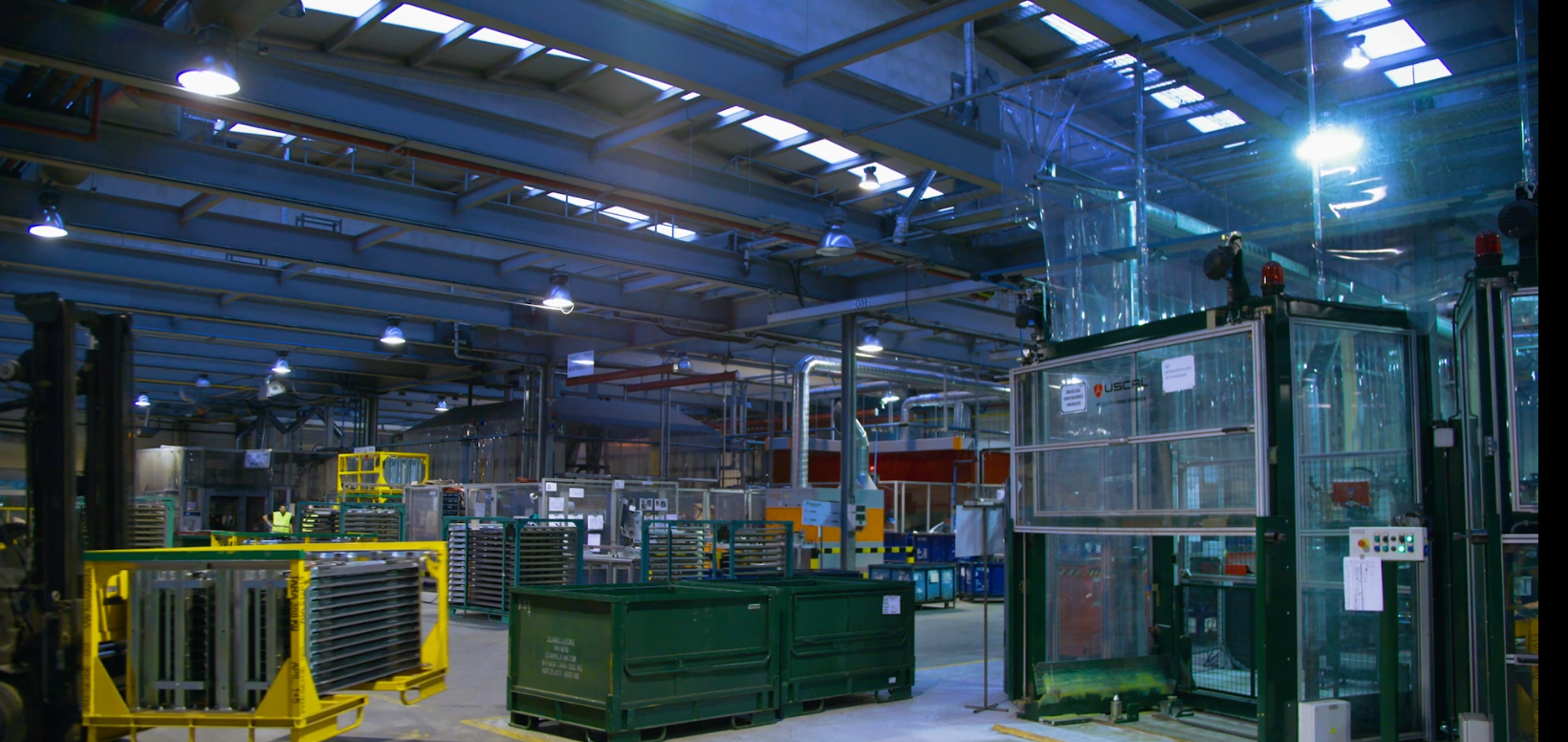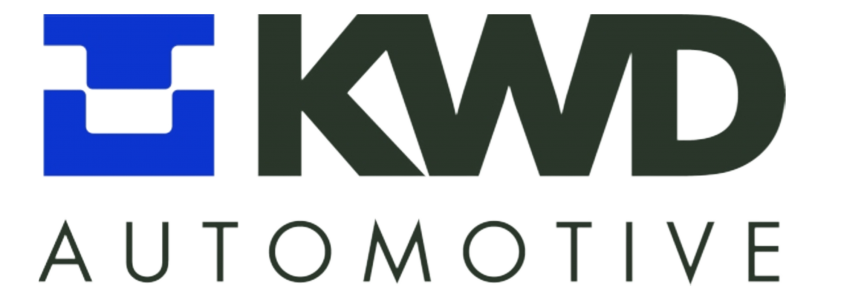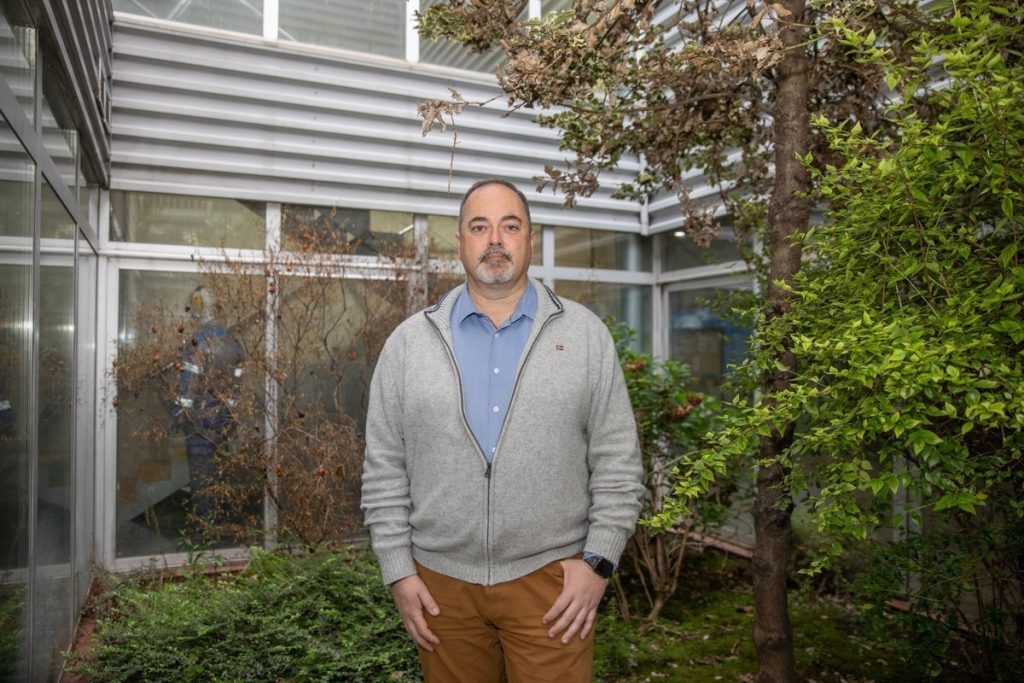
A lot has changed since KWD Spain was founded 25 years ago. Today it is a consolidated company in the automotive sector, with a turnover of around 55 million euros and a workforce of around a hundred people. But, above all, the company has a high degree of automation that places it as a leader and obligatory reference within its multinational group in everything that has to do with Industry 4.0. For this reason, its vice-president and head of business in Spain and Portugal, Roberto Lanaspa, is hopeful about its medium-term future. “We are facing the transition process towards electric vehicles in optimal conditions,” he says.
We are the leader and the main reference for all issues related to digitalisation and Industry 4.0. Specifically, from here we set the standards that will later be applied in data mining or data exploitation, to cite just two examples. These are issues that we pilot from Pamplona due, above all, to the differential ecosystem that our region has in strategic areas such as technology and industry. In addition to all of the above, having access to many of the very good talents that come out of the universities in Navarra makes it much easier for us to maintain our leadership position.
As an industry, we are in a clear process of transition and adaptation to the latest standards in digitalisation and automation. This does not only mean a change in machines and processes. It also involves a new mindset when it comes to directing and managing available resources. And, in parallel, this process is accompanied by a process of transformation and adaptation to the electric vehicle.
The opportunities for our companies are therefore many and varied, something I view with a certain optimism. Because the automotive sector in Navarra has long shown that it is solid and that, at the same time, it knows how to adapt to the challenges it faces because it has the capacity to lead them. For this reason, I have not the slightest doubt that this is what is going to happen in the coming years and that the arrival of the electric vehicle will allow us to prove our worth. And also that of the professionals who form part of this industrial sector that is so important for our region.
The approaches, the definition of the lines, the risks, the opportunities or the needs, etc., are being adopted in an adequate manner. Although it is true that sometimes the implementation of these plans is very complex.
The process has been simplified and today the barriers come more from the company’s side than from the system’s. In other words, society has changed for the better and I remember that when I was doing my internship -a few years ago- it was the company that came and chose. Not now. Students are the ones who decide where to do internships and that has forced us to make an extra effort to make our professional career projects attractive. This is the only way to attract the best talent. And this new situation has brought, from my point of view, an additional benefit because it has forced us companies to think about what we are doing, how we want to do it and how to present it in order to attract and retain these new generations entering the labour market.
As you know very well, apart from my responsibility at KWD, I also hold the presidency of the Automotive Cluster Association of Navarra (ACAN). This is where all or most of the companies in the sector are present, as well as the technology centres, including Naitec, Salesianos and others. In this regard, ACAN approved a Strategic Plan some time ago that envisages the development of round tables of excellence with the aim of sharing success stories and experiences that help our companies to become leaders in their respective areas of activity. Innovation and knowledge transfer form an essential part of these tables of excellence in which KWD actively participates as one of ACAN’s companies.
The evolution and weight that the association has gained in recent years has made it what it is today: an established and recognised player in the sector. The analysis we made at the time of the value chain, together with the development of various plans to ensure that our companies are consolidated as leaders within their respective groups, has enabled us to position ourselves. From there, I understand that the next steps must consist of accompanying, observing and trying to resolve, together with public and private institutions, all those difficulties that may arise in this process of transition to the electric vehicle that I referred to earlier. The future, in short, lies in being able to collaborate to dissipate this path.
My view on this subject is that Navarrese people, when they are born, have a certain tendency to stay at the region. And, although it is true that they can spend part of their lives abroad, they usually make a round trip. It is also true that the influence of the crisis has pushed the younger generations to seek their professional opportunities outside our region. But, I insist, I believe that there is still a certain attachment to returning here. That said, are we competitive when it comes to retaining this talent? My personal impression is that in Navarra we have had a certain feeling of being a benchmark in many things and this has led us not to worry about what was happening outside. In fact, other regions have worked hard on this issue and, for this reason, I feel that we need to continue working, not because we have stopped doing things, but because others have moved on and done much more.
The objectives and main lines have already been set and defined. What remains for us, therefore, is to persevere because the implementation of the electric vehicle will require efforts in terms of investment, work and adaptation, which will bring turbulence to our companies. We will therefore have to be very vigilant in order to foresee solutions with a certain degree of foresight. In this sense, the most important thing is not to think that we are investing in a new model, but rather that we are entering a new industrial paradigm with significant demands in terms of digitalisation, Big Data and interconnection. Success will depend on how we are able to use and apply all these opportunities that are coming our way.
The Navarrese character is compliant and this is an aspect that is very well recognised outside our borders. That is a very important part of the recognition we have achieved. What are we lacking? To put it one way, we need to sell more of what we do well. And that is the step we have yet to take in order to further increase the number of multinationals.

